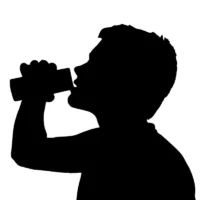What Are the Underage Drinking Laws in Florida?

Florida has state-specific laws regulating underage drinking and alcohol possession. It is especially important to grasp the complexities of the law and the consequences you may face if you or your kid is charged with underage drinking.
State Penalties for Underage Drinking
Alcohol is defined in Florida law as commercial beverages, such as cans of beer, ale, malt liquor, malt beverage, wine, or distilled spirits, as well as mixed cocktails, which are distilled spirits or other beverages containing 0.05% or more alcohol by volume.
Actual possession and constructive possession are the two forms of possession that can be punished under state law. Actual possession is defined as having the beverage on your person, such as in your hand or pocket. Constructive possession, on the other hand, arises when three conditions are met:
- Knowledge of the presence of alcohol;
- Knowledge of the alcohol’s illicit nature; and
- Dominion and control are exercised over the alcohol.
Possessing Alcohol
It is prohibited to possess any alcoholic beverage if you are under the age of 21. The following are the consequences for breaking this law:
- a second-degree misdemeanor for a first offense punishable by a fine of $500 and up to 60 days in jail;
- a first-degree misdemeanor for a second offense punishable by a fine of $1,000 and up to 1 year in jail.
Underage possession will also result in mandatory license suspensions. The court will order the Department of Highway Safety and Motor Vehicles to revoke or suspend your driver’s license in the following manner:
- 6-12 months for a first-time offense;
- Up to 2 years for a subsequent offense.
If you already have a suspended or revoked license, the suspension time will be increased by 6-12 months for a first offense and 2 years for a second violation. Furthermore, for minor violators who are not of driving age, a first offense will keep them from acquiring a license for 6-12 months, and further crimes would prevent them from receiving a license for 2 years.
While persons under the age of 21 are not permitted to possess any alcoholic beverage, these minor in possession (MIP) regulations do not apply to servers who are 18 or older who work for a licensed establishment that sells, prepares, or delivers alcoholic drinks to the public.
If you fulfill the qualifying conditions, you may seek a restricted license at the discretion of the court. A “business purposes only” license allows you to drive only for work, school, church, or medical reasons, but a “employment only” license allows you to drive solely to and from work and for any on-the-job driving.
Zero-Tolerance Law
The “Zero Tolerance” Law states that it is illegal for a motorist under the age of 21 to operate a motor vehicle with a blood alcohol content (BAC) of.02% or higher. The consequences for breaking the Zero Tolerance Law include a 6-month license suspension. If your BAC was .05% or above, your license will be suspended until you finish a substance abuse course. Be advised that if you do not finish the substance abuse educational course, the Department of Motor Vehicles will not restore your driver’s license, and if you are under the age of 18 at the time of the violation, the police must inform your parents.
Fake-IDs
It is illegal to use a borrowed, forged, counterfeit, or stolen Florida driver’s license or ID card to purchase or obtain alcohol. Violation of this law is a third-degree felony punishable by:
- A fine up to $5,000; and/or
- Up to 5 years in prison
Anyone who provides a fake identification to a minor will be subject to the same above penalties.
Presence of an Adult
It should be noted that, unlike other states, Florida does not enable parents to permit underage alcohol possession at home, and it also forbids selling or distributing alcohol to children, even if the alcohol is purchased by parents on behalf of kids. Even at a licensed business, it is unlawful for parents to enable their underage kid to imbibe alcohol. The minor may be prosecuted with underage alcohol possession and use, and the adult who permitted this action may face a second-degree misdemeanor punishable by:
- A fine up to $500; and/or
- Up to 60 days in jail.
Any adult who provides or sells alcohol to children will be held liable for any injuries or damages caused by the minor. This applies to adults who enable minors to consume alcohol in their bars, restaurants, and businesses where children may consume alcohol under their supervision.
Defense Against Alcohol-Related Charges
Some possible defenses to alcohol-related allegations include claiming ignorance that the beverage was alcoholic or that the alcoholic beverage was in your presence. You may, for example, claim that you had no idea the beverage you were holding for someone was alcoholic. The beverage’s alcoholic content is also a defense. A mixed drink, for example, is not deemed alcoholic under Florida law if it contains less than 0.05% alcohol by volume. If the authorities are unable to get the mixed drink in issue, they will be unable to show its alcohol by volume and hence charge you with possession.
Other common defenses include:
- Entrapment into possession;
- Detainment without probable cause to believe you’re underage;
- Lack of a warrant or probable cause to enter the premises.
Facing Underage Drinking Charges
If you or your child is charged with underage drinking, do not delay in contacting an attorney. Good legal counsel may make a big difference in your sentence, whether they fight for a reduced charge or alternative sentencing. Meldon Law may go over your case and advise you on your next steps in the legal process.




